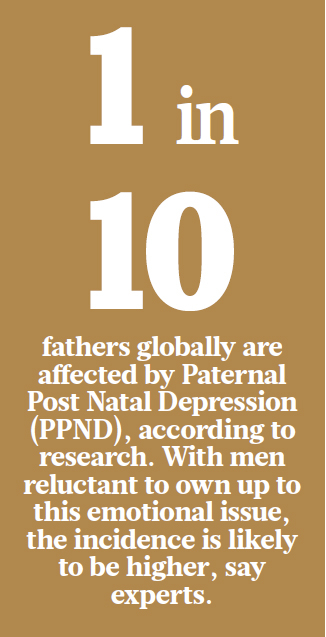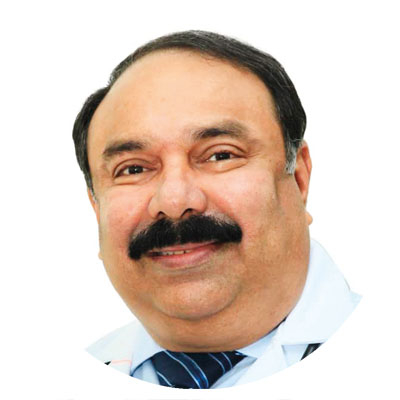Dubai The symptoms of PND among dads can be similar to those amongst new mums experiencing depression, said Dr Suijskens. All forms of depression associate with low mood, sadness and tearfulness without knowing the reason. It can affect the father’s ability to sleep and function in daily life. Feelings of worthlessness and hopelessness and suicidal thoughts are also symptomatic. In rare cases, some parents might also have thoughts of harming the baby which adds to the risk of this disorder.
The eventual impact of post natal depression is absorbed by the little child who is the trigger.
“Evidence shows that postpartum depression not only has an adverse effect on maternal/paternal–infant interaction and bonding during the first year of life, but may also have long-term effects on children over the age of one year, as well as on the mothers/fathers. For children, a parent’s ongoing depression can contribute to emotional, behavioral, cognitive, and interpersonal problems later in life,” added Dr Suijskens.
That is why Paternal PND needs to be taken seriously and an early diagnosis and treatment is highly recommended, she advised.
New fathers, do you exhibit these symtoms of PPND?
1. Isolation/reticence that manifests as a reluctance to talk or express emotions especially around the child.
2. Feeling aggression/frequent quarelling with family members?
3. A refusal to socially interact or a sense of lethargy and slowness to respond to situations.
4. Sleep deprivation.
5. Alcoholism/substance abuse/obsessive eating.
Best practices
Do
• Seek information and support before the baby arrives. This will help build an understanding of what to expect emotionally and psychologically following your baby’s arrival, both for you and your partner. It could also be for more practical support such as how to change a nappy. This will allow you to feel prepared and engaged.
• Speak openly about your worries and fears. This might be with your wife or with a trusted friend or a care provider. It is also helpful to talk as a couple about how to navigate the changes ahead.
• Ask for help. Babies do not come with a manual and childrearing is not a one-size-fits-all process. This may also be asking for help for your wife or encouraging her to seek help.
• Look out for other dads in similar situations and join a support group. That can be a tremendous help in releasing any pent-up feelings or doubts
Don’t
• Assume it won’t happen to you. It can happen to anyone but being prepared and understanding the risks and how to get help is the best way to reduce the risk of it happening.
• Bury your head in the sand and try to plough on. There is plenty of support out there.
Treatment
It is important to recognise the signs of PPND and seek help. Dr Mohamamd Yousef, specialist psychiatrist at Aster Clinic Muteena, said treatment typically is a combination of talk therapy and medication. “In mild to medium cases, we counsel the dad, talk to him about expressing his emotions and if necessary, provide him with proper medication. For severe cases, there is short- and long-term psychotherapy which is usually taken on by a clinical psychologist. But I advise new dads to definitely seek help once they identify their condition. If left untreated, it can be serious, wreck relationships and be life threatening too.”
Whatever the case, PPND is not a scourge and talking to your psychiatrist definitely helps. In many cases psychogists use Cognitive Behavioral Therapy which was proved to be effective in handling sensitive cases. This involves identifying behaviour pattern as good or bad, pleasant or unpleasant and then either systematically deleting the negative ones and reinforcing the positive ones.










